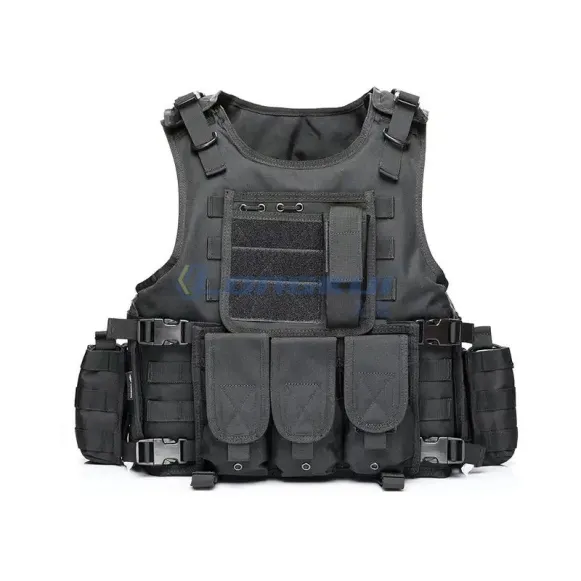Buying a bulletproof vest is a significant decision that requires careful consideration of various factors to ensure you choose the right vest for your specific needs and circumstances. Here are important things to know before buying a bulletproof vest:
Level of Protection:
Bulletproof vests are rated according to different levels of protection (e.g., NIJ Level II, IIIA, III, IV). Understand the threat level you may face and choose a vest that provides the appropriate protection.
NIJ Certification:
Ensure that the vest has been certified by the National Institute of Justice (NIJ). NIJ certification indicates that the vest has undergone rigorous testing and meets specific standards for ballistic resistance.
Purpose and Usage:
Identify the specific purpose for which you need the bulletproof vest. Vests vary in design and protection levels, so whether it's for personal protection, law enforcement, or military use, choose accordingly.
Comfort and Fit:
A comfortable and well-fitting vest is essential. Consider factors like size, weight, and adjustability. A properly fitted vest ensures better coverage and reduces the risk of injury.

Concealability vs. Overt Design:
Determine whether you need a covert (concealable) or overt (visible) vest. Covert vests are designed to be worn discreetly under clothing, while overt vests are worn over clothing and may provide additional protection.
Material and Construction:
Bulletproof vests are made from various materials, including Kevlar, Dyneema, and ceramic plates. Understand the materials used in the vest's construction and their impact on weight, flexibility, and durability.
Threats and Limitations:
Be aware of the specific threats the vest is designed to resist. Different vests provide protection against different types of ammunition and weapons. Know the limitations of the vest you are considering.
Maintenance and Care:
Understand the maintenance requirements of the vest. Some vests may have specific care instructions, and regular inspections are necessary to ensure the integrity of the ballistic panels.
Weight and Mobility:
Consider the weight of the vest, especially if you plan to wear it for extended periods. Lightweight vests may be more comfortable but might provide lower protection levels. Balance weight with the need for mobility.
Legal Considerations:
Be aware of the legal restrictions and regulations regarding the purchase and use of bulletproof vests in your jurisdiction. Some areas may have specific laws governing the ownership of such protective gear.
Budget:
Bulletproof vests come in a range of prices. Establish a budget based on your needs and the level of protection required. Keep in mind that quality and performance often correlate with price.
Brand Reputation:
Choose a reputable and well-established manufacturer or brand. Research customer reviews and testimonials to ensure the vest meets the necessary standards and performs as expected.
Testing and Warranty:
Inquire about any additional testing the vest has undergone beyond NIJ certification. Check if the Bulletproof Vest manufacturer offers a warranty, and understand the terms and conditions.
Before making a purchase, it's advisable to consult with professionals in the field, such as law enforcement agencies or security experts, for guidance on the most suitable bulletproof vest for your specific requirements.


Comments
Please Join Us to post.
0